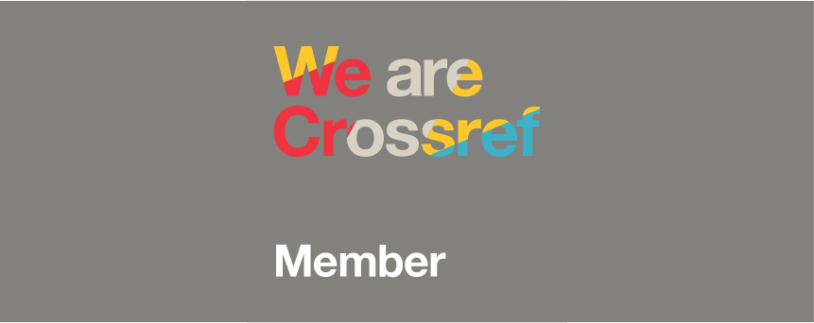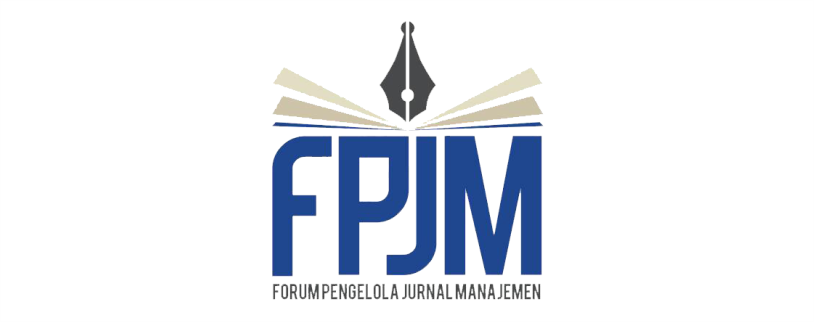Employee Green Behavior's Impact on Sustainable Environmental Performance: Exploring The Mediating-Moderating Roles of Perceived Organizational Support and Self-Efficacy
DOI:
https://doi.org/10.26905/jmdk.v12i1.12050Keywords:
Employee Green Behavior, Environment Performance, Perceived Organizational Support, Self-EfficacyAbstract
This study aims to analyze the mediating role of perceived organizational support and moderating role of self-efficacy in the influence of employee green behavior on environmental performance sustainability. The method used in the study was quantitative, involving 300 respondents. The data analysis technique utilized is path analysis to test for mediation and moderation effects. Findings of this research are perceived organizational support has no mediating role in the influence of employee green behavior on environmental performance. While self-efficacy plays a role in strengthening pro-environmental behavior in sustainable environmental performance. This research further corroborates the theory of organizational behavior, which highlights the influence of social dynamics and group norms on individual behavior. When employees observe their colleagues engaging in pro-environmental behavior, it can establish social norms within the organization and encourage the adoption of that behavior by others. The implications of these findings are that universities need to prioritize other factors that have a greater impact on improving sustainable environmental performance. For instance, external factors such as government regulations or pressure from influential stakeholders may drive organizations to adopt sustainable practices. Universities should also evaluate the strategies and policies used to enhance their environmental performance.
Downloads
References
Aboramadan, M., Crawford, J., Turkmenoglu, M. A., & Farao, C. (2022). Green inclusive leadership and employee green behaviors in the hotel industry: Does perceived green organizational support matter? International Journal of Hospitality Management, 107, 103330. https://doi.org/https://doi.org/10.1016/j.ijhm.2022.103330
Afsar, B., Shahjehan, A., & Abdullah, Z. (2016). Green campus initiatives: A case study of a higher education institution in Malaysia. Journal of Cleaner Production, 112(4), 3460–3472.
Ahmed, M., Guo, Q., Qureshi, M. A., Raza, S. A., Khan, K., & Salam, J. (2021). Do green HR practices enhance green motivation and proactive environmental management maturity in hotel industry? International Journal of Hospitality Management, 94, 102852. https://doi.org/10.1016/j.ijhm.2020.102852
Alhaddi, H. (2015). Triple bottom line and sustainability: A literature review. Business and Management studies, 1(2), 6-10. https://doi.org/10.11114/bms.v1i2.752
Al-Hawari, M. A., Quratulain, S., & Melhem, S. B. (2021). How and when frontline employees’ environmental values influence their green creativity? Examining the role of perceived work meaningfulness and green HRM practices. Journal of Cleaner Production, 310, 127598.
https://doi.org/https://doi.org/10.1016/j.jclepro.2021.127598
Ali, F., Ashfaq, M., Begum, S., & Ali, A. (2020). How “Green†Thinking and Altruism Translate into Purchasing Intentions for Electronics Products: The Intrinsic-Extrinsic Motivation Mechanism. Sustainable Production and Consumption, 24, 281-291
https://doi.org/10.1016/j.spc.2020.07.013
Arumugam, V., & Opatha, H. H. D. N. P. (2018). Green behavior of academic staff in higher education: A case study from Sri Lanka. International Journal of Environmental Science and Technology, 15(5), 981–992.
Boehnert, J. (2015). Ecological Literacy in Design Education - A Theoretical Introduction. FormAkademisk, 8(1). https://doi.org/10.7577/formakademisk.1405
Del Baldo, M. (2019). Sustainability in higher education institutions: A systematic review and bibliometric analysis. Sustainability, 11(10), 2961.
Dessler, G. (2013). Manajemen Sumber Daya Manusia Jilid 2 (2nd ed.). Jakarta: Prenhalindo.
Dewi, N., & Sudibya, I. (2016). Pengaruh Efikasi Diri Terhadap Organizational Citizenship Behavior Dengan Kepuasan Kerja Sebagai Variabel Mediasi. E-Jurnal Manajemen Unud, 5(11), 7473–7499.
Elbarhaz, N. R. F. (2022). Perceived Green Organizational Support Memediasi Pengaruh Green Human Resource Management Terhadap Organizational Citizenship Behavior For Environment Pada Karyawan PT Sinar Sosro Cabang Bekasi. Skripsi. Universitas Trisakti.
Farooq, R., Zhang, Z., Talwar, S., & Dhir, A. (2021). Do green human resource management and self-efficacy facilitate green creativity? A study of luxury hotels and resorts. Journal of Sustainable Tourism, 30(4), 824-845 https://doi.org/10.1080/09669582.2021.1891239
Harvey, D. M., Bosco, S. M., & Emanuele, G. (2010). The impact of “greenâ€collar workers†on organizations. Management Research Review, 33(5), 499–511.
Huang, L., Guo, Z., Deng, B., & Wang, B. (2023). Unlocking the relationship between environmentally specific transformational leadership and employees’ green behaviour: A cultural self-representation perspective. Journal of Cleaner Production, 382, 134857. https://doi.org/https://doi.org/10.1016/j.jclepro.2022.134857
Isrososiawan, S., Rahayu, A., & Wibowo, L. A. (2021). Green Human Resources Management Mendukung Kinerja Lingkungan Industri Perhotelan. Jurnal Co Management, 3(2), 457–470. https://doi.org/10.32670/comanagement.v3i2.425
Joo, B.-K., Hahn, H.-J., & Peterson, S. (2015). Turnover intention: The effects of core self-evaluations, proactive personality, perceived organizational support, developmental feedback, and job complexity. Human Resource Development International, 18(2) 116–130. https://doi.org/10.1080/13678868.2015.1026549
Keraf, A. S. (2014). Filsafat Lingkungan Hidup, Alam sebagai Sebuah Sistem Kehidupan. Yogyakarta: PT Kanisius.
Khan, K., Shams, M. S., Khan, Q., Akbar, S., & Niazi, M. M. (2022). Relationship Among Green Human Resource Management, Green Knowledge Sharing, Green Commitment, and Green Behavior: A Moderated Mediation Model. Frontiers in Psychology, 13. https://doi.org/10.3389/fpsyg.2022.924492
Kuenzi, M., Schminke, M., & Ascalon, M. E. (2013). Green behavior: A review and future directions for organizational research. Journal of Management, 39(2), 165–199.
Manika, D., Gregory-Smith, D., Wells, V., & Graham, S. (2015). Home vs. workplace energy saving attitudes and behaviors: The moderating role of satisfaction with current energy saving behaviors, gender, age, and job duration.
Molnar, A., Tapolyai, M., & Szabó, Z. (2017). Green universities: Drivers and barriers to sustainability-focused practices in Hungarian higher education institutions. Journal of Cleaner Production, 166, 493–504.
Morrow, P. C. (2011). Managing organizational commitment: Insights from longitudinal research. Journal of Vocational Behavior, 79(1), 18–35.
https://doi.org/10.1016/j.jvb.2010.12.008
Newman, A., Tse, H. H. M., Schwarz, G., & Nielsen, I. (2018). The effects of employees’ creative self-efficacy on innovative behavior: The role of entrepreneurial leadership. Journal of Business Research, 89, 1–9. https://doi.org/https://doi.org/10.1016/j.jbusres.2018.04.001
Norton, T. A., Parker, S. L., Zacher, H., & Ashkanasy, N. M. (2015). Employee Green Behavior: A Theoretical Framework, Multilevel Review, and Future Research Agenda. Organization & Environment, 28(1), 103–125. https://doi.org/10.1177/1086026615575773
Ong, J., & Riyanto, S. (2020). Green Human Resource Management in Manufacturing Company. IOSR Journal of Business and Management, 22 (4), 48–57.
https://doi.org/10.9790/487X-2204074857
Özbağ, G. K., Çekmecelioğlu, H. G., & Ceyhun, G. Ç. (2014). Exploring the Effects of Perceived Organizational Impediments and Role Stress on Job Performance. Procedia - Social and Behavioral Sciences, 150, 1129–1136. https://doi.org/https://doi.org/10.1016/j.sbspro.2014.09.128
Paillé, P., & MejÃa-Morelos, J. H. (2014). Antecedents of pro-environmental behaviours at work: The moderating influence of psychological contract breach. Journal of Environmental Psychology, 38, 124–131. https://doi.org/10.1016/j.jenvp.2014.01.004
Parida, S., Ananthram, S., Chan, C., & Brown, K. (2021). Green office buildings and sustainability: Does green human resource management elicit green behaviors? Journal of Cleaner Production, 329, 129764. https://doi.org/https://doi.org/10.1016/j.jclepro.2021.129764
Pinzone, M., Guerci, M., Lettieri, E., & Huisingh, D. (2019). Effects of ‘green’ training on pro-environmental behaviors and job satisfaction: Evidence from the Italian healthcare sector. Journal of Cleaner Production, 226, 221–232. https://doi.org/https://doi.org/10.1016/j.jclepro.2019.04.048
Rasoolimanesh, S. M., Jaafar, M., Kock, N., & Ramayah, T. (2015). A revised framework of social exchange theory to investigate the factors influencing residents’ perceptions. Tourism Management Perspectives, 16, 335–345. https://doi.org/https://doi.org/10.1016/j.tmp.2015.10.001
Robbins, Stephen P. Judge, T. A. (2013). Organizational Behavior Edition 15 (15th ed.). Pearson Education Limited.
Robertson, J. L., & Barling, J. (2013). Greening organizations through leaders’ influence on employees’ pro-environmental behaviors. Journal of Organizational Behavior, 34(2), 176–194.
Rustika, I. M. (2012). Efikasi Diri: Tinjauan Teori Albert Bandura. Buletin Psikologi, 20(1–2), 18–25.
Stephen, C. H. N. (2022). The role of perceived organizational supports and management nationality amid physical Workplace’s planned quality change. Asia Pacific Management Review. 28(2), 138-145.
https://doi.org/https://doi.org/10.1016/j.apmrv.2022.07.004
Tantawi, R., Armanu, A., & Sudjatno, S. (2016). The Role of Job Motivation and Job Satisfaction in Mediating theEffect of Teacher’s Certification on The Teacher’s Performance in Gorontalo Elementary. Jurnal Aplikasi Manajemen, 14(4), 629-640.
Tuan, L. T. (2019). Building employees’ organizational citizenship behavior for the environment: The role of environmentally-specific servant leadership and a moderated mediation mechanism. International Journal of Contemporary Hospitality Management; Bradford, 31(1), 406–426. https://doi.org/DOI:10.1108/IJCHM-07-2017-0425
Tuan, L. T. (2022). Promoting employee green behavior in the Chinese and Vietnamese hospitality contexts: The roles of green human resource management practices and responsible leadership. International Journal of Hospitality Management, 105, 103253. https://doi.org/https://doi.org/10.1016/j.ijhm.2022.103253
Tuna, M., Bodur, M., & Yılmaz, Ö. (2016). The effects of individual factors on green behaviors: A study of hotel employees in Turkey. Journal of Hospitality and Tourism Management, 27, 17–26.
Unsworth, K. L., Davis, M. C., Russell, S. V, & Bretter, C. (2021). Employee green behaviour: How organizations can help the environment. Current Opinion in Psychology, 42, 1–6. https://doi.org/https://doi.org/10.1016/j.copsyc.2020.12.006
Uppal, A., Kakkar, B., & Awasthi, Y. (2022). An Examination of green HR practices and its impact on environmental sustainability. International Journal of Recent Technology and Engineering, 8, 100–105. https://doi.org/10.35940/ijrte.C1038.1183S319
Veitch, J. A. (2018). How and why to assess workplace design: Facilities management supports human resources. Organizational Dynamics, 47(2), 78–87. https://doi.org/10.1016/j.orgdyn.2018.01.002
Verawati, E. (2022). NUSANTARA: Jurnal Ilmu Pengetahuan Sosial Analisis Efikasi Diri Terhadap Organizational Citizenship Behavior (OCB) dan Pengaruhnya Bagi Guru di Pondok Pesantren Al-Huda Bojong Gintung 1. NUSANTARA : Ilmu Pengetahuan Sosial, 9(1), 154–161. http://jurnal.um-tapsel.ac.id/index.php/nusantara/index
Wang, S., Abbas, J., Sial, M. S., Ãlvarez-Otero, S., & Cioca, L.-I. (2022). Achieving green innovation and sustainable development goals through green knowledge management: Moderating role of organizational green culture. Journal of Innovation & Knowledge, 7(4), 100272. https://doi.org/https://doi.org/10.1016/j.jik.2022.100272
Yeh, C.-H., Lin, H.-H., Wang, Y.-M., Wang, Y.-S., & Lo, C.-W. (2021). Investigating the relationships between entrepreneurial education and self-efficacy and performance in the context of internet entrepreneurship. The International Journal of Management Education, 19(3), 100565. https://doi.org/https://doi.org/10.1016/j.ijme.2021.100565
Yendrawati, R., & Tarusnawati, L. R. (2013). Peran Environmental Performance Terhadap Environmental Disclosure Dan Economic Performance. Jurnal Keuangan Dan Perbankan, 17(3), 434–442.
Zacher, H., Rudolph, C., & Katz, I. (2022). Employee Green Behavior as the Core of Environmentally Sustainable Organizations. Annual Review of Organizational Psychology and Organizational Behavior, 10. https://doi.org/10.1146/annurev-orgpsych-120920-050421
Zaid, A., & Jaaron, A. (2023). The Impact of Green Human Resource Management Practices with Sustainable and Operational Performance: A Conceptual Model, 583–610. https://doi.org/10.1007/978-3-031-08090-6_37
Zientara, P., & Zamojska, A. (2018). Green organizational climates and employee pro-environmental behaviour in the hotel industry. Journal of Sustainable Tourism, 26(7), 142-1149. https://doi.org/10.1080/09669582.2016.1206554
Downloads
Published
Issue
Section
License
Authors who publish with this journal agree to the following terms:
(1)Â Copyright of the published articles will be transferred to the journal as the publisher of the manuscripts. Therefore, the author confirms that the copyright has been managed by the journal.
(2) Publisher of Jurnal Penelitian is University of Merdeka Malang.
(3) The copyright follows Creative Commons Attribution–ShareAlike License (CC BY SA): This license allows to Share — copy and redistribute the material in any medium or format, Adapt — remix, transform, and build upon the material, for any purpose, even commercially.












